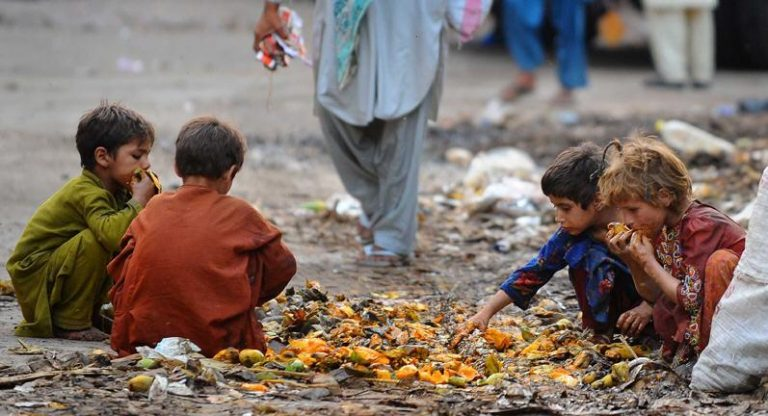 Munaza Kazmi
Munaza Kazmi
Philanthropy! Hence a practice of genuine consideration, that enables a person to do something for the community, generally donation. But have you ever thought how long a person will donate, and how long the other would live on donations? Moreover, the status of the giver in this scenario remains always the same; poor and needy.So, why not think out of this tradition.
Basically, we have to combat the poverty, in order to make the communities self sufficient and prosperous. Consider “Is it possible to fight poverty through business?”
Let me help you to answer it with reasons.
Tourism, a world fastest growing industry, that is driven by personal encounters. Since, it is a people business and the experiences a tourist pays for are created by people they meet. Likewise, each year, more than one billion people travel across international borders. Roughly the same number of people live on less than one U.S. dollar per day.
There’s a practice called “Inclusive Business”, that bring these two groups together and create opportunities for both.
People living in poverty, are often already participants in tourism’s value chains. However, these individuals usually participate informally and at the margins, as porters, travel guide, cleaning ladies, farmers and so on. Moreover, in their case the employment and entrepreneurship opportunities are often irregular and associated with significant risks and little upward potential.
Looking ahead, tourism could become a promising platform for many bright people seeking a way out of poverty. This entails, however, that companies offer decent working conditions, access to career opportunities, and sound partnerships with local communities and individuals along the value chain.
Inclusive Businesses include people living in poverty as customers, employees and entrepreneurs at various points along the value chain for mutual benefit. These business strategies may be developed by entrepreneurs or by managers within existing companies, whether large or small. In the tourism sector, low-income people are active primarily on the supply side as employees or entrepreneurs. Entrepreneurship in tourism can entail doing business with individuals or with entire communities, in particular when conducting activities on land owned by traditional communities or engaging in activities that rely on the local culture as a resource. Inclusive business in tourism stimulates the local economy while promoting social dialogue and cultural and environmental preservation.
Furthermore, Inclusive Business is a strategy about identifying and realizing mutual benefits. Such that, companies that collaborate with local communities and low-income people benefit from improved product quality and innovation, as products become more authentic and unique with a touch of culture. Working together with local communities improves a firm’s reputation not only within the community, but also among guests, government authorities and across the broader public. Companies can reduce costs by sourcing locally and, at the same time, actively manage risks associated with socio-economic frustrations within communities.
On the other hand, communities and low-income people, benefit from opportunities for income from employment and entrepreneurship. Acquiring new skills and improved knowledge enables them, in turn, to access better jobs and better entrepreneurship opportunities.
In general, there are two paths for collaboration between tourism companies and low- income people: either through employment or entrepreneurship. Which one is more appropriate depends on the frequency and exclusiveness of the collaboration.
Let’s talk about Employment first, employment of low-income people is the appropriate framework when work is needed on a daily basis, or the amount of work is such that it fills a fullor part time position. Companies also want to employ people when they expect them to acquire specific skills for their business, and train them to their own standards. Tourism generates many employment opportunities in maintenance and service, in particular in hotels and restaurants. Other companies in the tourism value chain, such as tour operators, activity providers, and souvenir makers and shops employ people in many other areas as drivers, guides, artisans and so on. Many low-income people prefer employment over entrepreneurship, since it promises security and a stable income over the medium or long term.
Secondly Entrepreneurship, usually companies work with independent entrepreneurs when they require their products or services but prefer to buy them on the market since demand is limited or fluctuating, or when they want to make sure they always get the best quality. Low-income people are often in a unique position to provide goods and services. Let’s say, smallholders can provide fresh local produce. Whereas, artisans and craftspeople master typical local techniques. Guides know their local environment and can interpret local languages and customs. True, some low-income people prefer to work as entrepreneurs, since they enjoy freedom in organizing their work and have a greater ability to influence their incomes and negotiate with clients.
Along with this, Tourism that is soundly integrated into the local economy and culture provides incentives and funds for the conservation of natural, cultural and historical resources. Finally, structural benefits from improved infrastructure and public services create broad- based benefits for everyone, or we can say Triple Bottom Line Results.
Real life example is AKDN, working in Pakistan since 1905 on the principles of Inclusive Business practices towards sustainability and combating poverty.
Munaza Kazmi holds MPhil in Management Sciences. She’s a travel writer, a published author, & co-author of scientific contributions.


